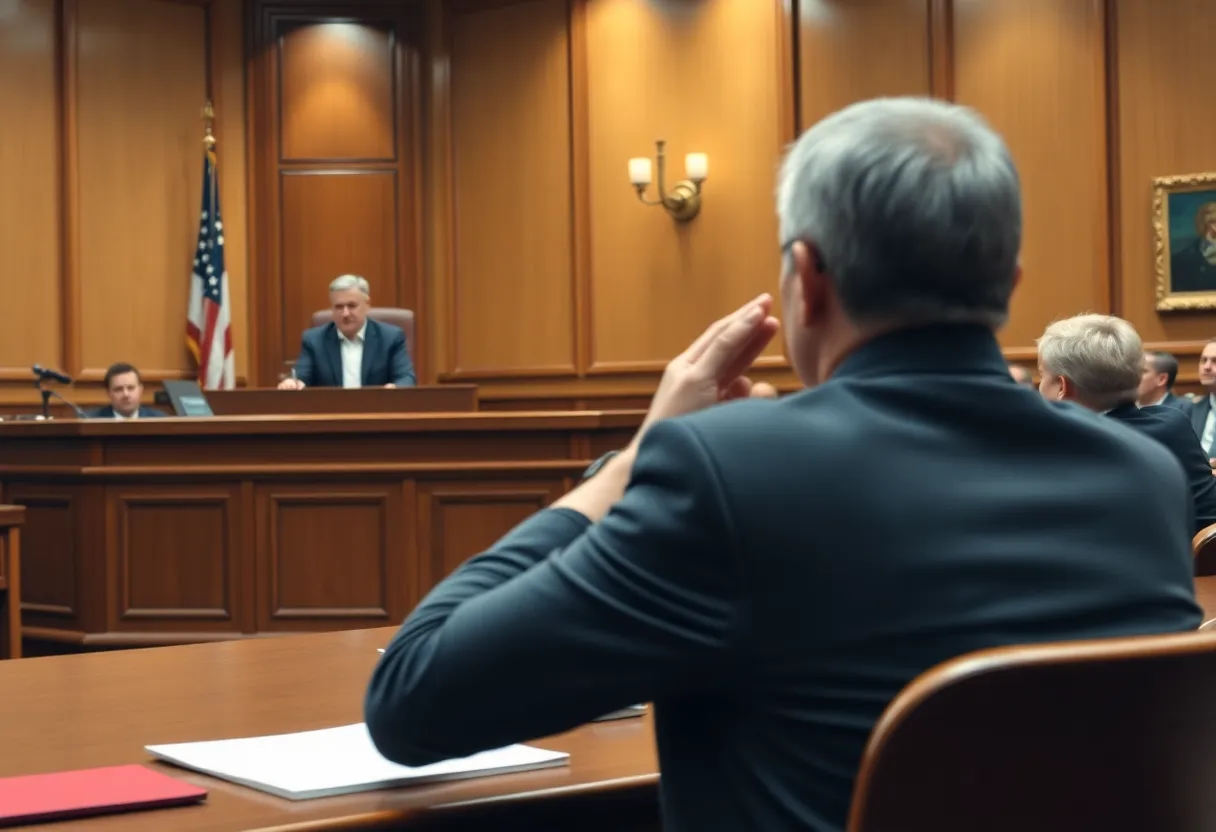

A tense moment in the courtroom as legal representatives debate critical disability rights issues.
In a heated Supreme Court session, Justice Neil Gorsuch confronted lawyer Lisa Blatt over accusations of dishonesty in a disability discrimination case regarding students’ rights under the Americans with Disabilities Act. The dispute centers on claims that a public school failed to provide necessary services for a girl with epilepsy. Gorsuch’s unusual anger during the proceedings highlights critical issues around disability rights and school responsibilities, drawing wider attention from the legal community.
In a remarkable display of judicial tension, Supreme Court Justice Neil Gorsuch admonished lawyer Lisa Blatt during oral arguments on Monday, as the court deliberated a pivotal disability discrimination case. The case, titled A.J.T. v. Osseo Area Schools, centers around the rights of students with disabilities under the Americans with Disabilities Act of 1990. At the heart of the dispute are the parents of a girl suffering from severe epilepsy who allege that their local public school failed to provide necessary at-home schooling services.
The proceedings took a heated turn when Blatt, representing the Minnesota public schools, accused the plaintiffs of lying about the school’s policies. Gorsuch, known for his measured demeanor, took issue with this allegation and warned Blatt to choose her words with care, emphasizing that lying is a serious accusation. The tense exchange caught many in the courtroom—and those observing from afar—by surprise, as Gorsuch’s unusual anger over the matter became evident. After a persistent rebuke, Blatt eventually agreed to withdraw her accusation of dishonesty, a rare concession in such a formal legal setting.
The case has garnered significant attention not only for Gorsuch’s rare display of anger but also for the critical issues at stake regarding the rights of disabled students. As the legal community watches carefully, the implications of this case extend beyond these specific circumstances to broader debates about school responsibility and the interpretation of disability rights legislation within the educational system.
This latest incident is not Gorsuch’s first brush with controversy. Earlier this year, he faced backlash related to a children’s book titled “Pride Puppy”, which emerged during a case examining the inclusion of LGBTQ+ content in public school curriculums. Religious parents expressed concerns about whether educational materials, presented at an impressionable age, might conflict with their personal beliefs. Gorsuch, alongside his fellow justices, delved into the implications of parents seeking to opt their children out of certain materials they find objectionable. This discussion raised crucial questions about parental rights versus educational inclusivity.
In another contentious case, “Mahmoud v. Taylor”, the Supreme Court has demonstrated a trend toward siding with advocates for religious rights. The backdrop of these discussions continues to highlight the ongoing tension between diverse educational materials and established family beliefs. The recent controversy surrounding Maryland’s Montgomery County Public Schools, which faced criticism for pushing a curriculum featuring LGBTQ+ themes against the expressed wishes of certain religious parents, illustrates the challenges on this front.
In a separate but related matter, Gorsuch recently announced his decision to recuse himself from an environmental case linked to billionaire Philip Anschutz. Citing adherence to a new ethics code instituted by the Supreme Court, Gorsuch has faced calls in the past to avoid cases involving Anschutz’s interests, given his previous legal work for the billionaire. Observers noted that while the Supreme Court has implemented an ethics code, it lacks an enforcement mechanism, sparking discussions among lawmakers regarding potential legal reforms.
The latest developments in the Supreme Court showcase the complex interplay between law, education, and individual rights. With Gorsuch’s strong responses in the courtroom, particularly during the A.J.T. case, and the backdrop of rising tensions over parental rights in education, the legal landscape is becoming increasingly fraught with challenges that will undoubtedly take center stage in the courts for the foreseeable future.
Supreme Court Upholds Transgender Military Ban Amid Controversy
Legal Showdown: Judge Hannah Dugan Indicted on Obstruction Charges
Trump’s Executive Orders Target Law Firms: A Challenge for Lawyers
Elon Musk’s Influence in the Wisconsin Supreme Court Race
Missouri’s Lawyer Andrew Bailey Leads Legal Challenges
Tax Turmoil: Major IRS Overhaul Amidst Leadership Changes
Greenville’s Unprecedented Firing Squad Execution
Trump Fires Federal Inspectors General in Major Shake-Up
Supreme Court Considers TikTok’s Ban Over Security Concerns
News Summary In Minnesota, advancements in personal injury law are marked by dedicated attorneys like…
News Summary Minnesota's personal injury attorneys are adapting to new trends and challenges, including client…
News Summary The personal injury law landscape in Minnesota is transforming as injured individuals face…
News Summary Miami's legal sector is rapidly transforming with the introduction of new personal injury…
News Summary Russell D. Nicolet, founder of Nicolet Law Accident & Injury Lawyers, has been…
News Summary In the aftermath of an accident, taking immediate legal action is essential. This…